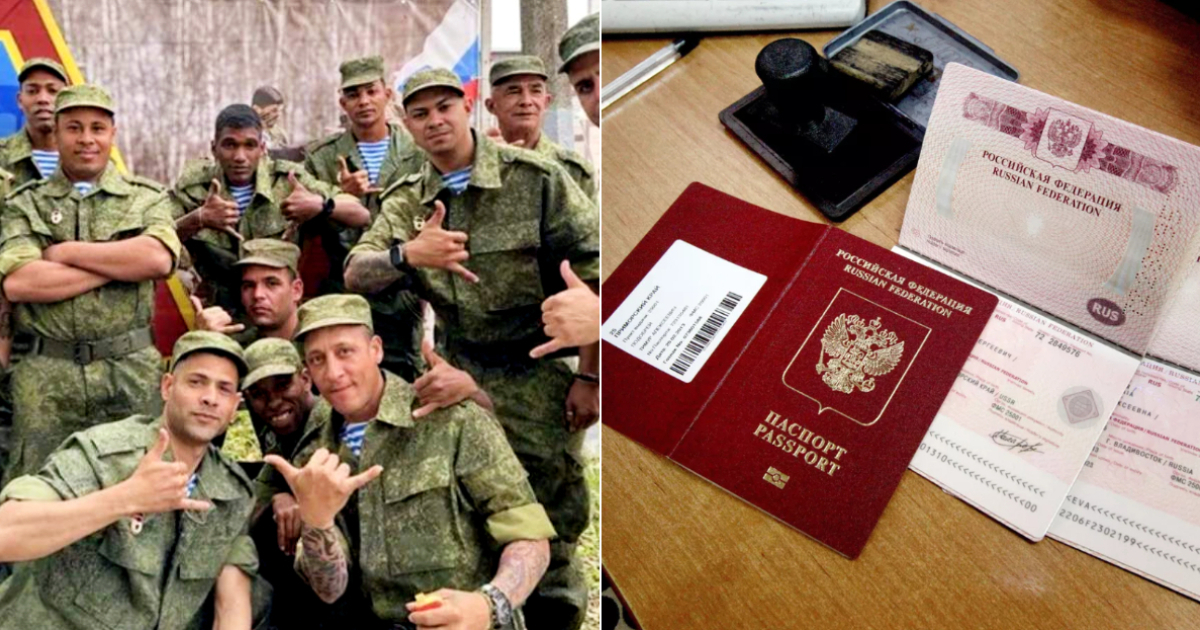The expansive Russian invasion of Ukraine, initiated in February 2022, has not only reshaped global geopolitics but also drawn citizens from distant lands, such as Cuba, into a rarely documented human ordeal. Cuban mercenaries, lured by promises of high wages and swift Russian citizenship, find themselves entangled in a brutal war with no escape and a bleak future.
A recent report by Politico sheds light on how these individuals, hailing from a nation under a totalitarian regime and struggling with severe economic issues, become victims of a system that exploits and discards them once they're deemed unnecessary. The narratives depict not only the harshness of the conflict but also the desperation of a people striving for any opportunity to improve their lives, even at great personal risk.
The Illusion of the Russian Passport
For numerous Cubans, the promise of a Russian passport signified a rare chance to flee the dire poverty gripping their homeland, as highlighted by Politico in its comprehensive coverage. Recruited via intermediaries and social media ads, these individuals believed they were signing up for civil jobs in construction or basic services. However, upon arriving in Russia, they faced an entirely different reality: their fate was now tied to the Ukrainian frontline.
What was meant to be a symbol of liberation and new prospects—the Russian passport—turned into a trap. Once granted citizenship, the Kremlin treated these recruits as ordinary citizens, compelling them to continue fighting, often extending beyond their initial contract terms. David, a Cuban recruit interviewed by Politico, described the situation as "blackmail." "They are using citizenship to bind us," he lamented during a video call from an undisclosed location, where he remains hidden after fleeing the front.
The Harsh Reality of the Battlefield: "Kill or Be Killed"
The report further details how these recruits, once teachers, carpenters, and waiters, were sent to the front lines without adequate preparation. Some suffered severe injuries and were forced back into combat before fully healing. Life at the front not only poses physical dangers but also leads to severe mental deterioration. David, who endured post-traumatic stress and shrapnel wounds, confessed he faced each day with the agonizing choice of "kill or be killed," seeing no other way to protect his family.
Others, like Manuel, never received the Russian passports they were promised. Upon arrival in Russia, their Cuban documents were confiscated, leaving them with only military IDs that bound them further under the Russian Defense Ministry's control. With no escape routes and fearing punishment for desertion, many resorted to prayer, hoping for a divine intervention to rescue them from their plight.
Global Recruitment: A Desperate Kremlin Strategy
The Kremlin has turned to recruiting foreign nationals to fill massive gaps at the front lines. According to Politico, fighters from Nepal, Ghana, Syria, and Sri Lanka have also been drawn into the conflict under similar conditions. Though they constitute a minor segment of the Russian army, their presence is politically exploited by Moscow to bolster a narrative of an "international coalition" against U.S. dominance.
For Cubans, this strategy evokes memories of the Cold War, when Fidel Castro's government dispatched troops to Africa at the Soviet Union's behest. Unlike those ideological missions, today's Cuban fighters in Ukraine are primarily motivated by economic desperation, seeking to escape poverty on the island.
Havana's Role: Complicit or Indifferent?
In September 2023, following initial reports of Cubans fighting in Ukraine, the Cuban regime labeled these individuals as "mercenaries" and announced legal actions against alleged recruiters. Critics, however, argue that it's unlikely a regime with such tight control over its population's movements failed to notice the mass exodus of young people to Russia.
Cuba's dependency on Russia for essential supplies like crude oil and wheat adds complexity to its stance on recruitment. In May 2024, Cuban leader Miguel Díaz-Canel attended a ceremony in Moscow, expressing support for Russia's "special military operation," using President Putin's preferred euphemism for the war.
Tales of Suffering and Death
The human tragedy behind these stories is heart-wrenching. Many recruits have perished in combat, leaving their families in Cuba with unanswered questions and immense grief. In some cases, the bodies haven't been repatriated, forcing families to bear the cost of funerals in Russia. Others simply vanish, leaving loved ones in emotional limbo.
A notable case is that of Denis Frank Pacheco Rubio, a Cuban recruit who died in an assault in Siversk, north of Donetsk, four months after his contract should have ended. His family remains without news of his remains, trapped in an endless void.
"An Escape from Here"
For the few who have managed to flee the front lines, life remains challenging. Without documents and fearing reprisals from both Russian and Cuban authorities, they live in hiding, seeking a way out. Jorge, another recruit interviewed by Politico, noted that hearing of successful escapes gives him hope, but he is also aware of the risks: captured deserters face severe punishment, from reassignment to high-risk posts as a penalty.
Amid this grim scenario, news of each successful escape brings a glimmer of hope for those still trapped. Yet for most, the only option seems to be waiting and praying for the day they might return as free men.
FAQs on Cuban Mercenaries in Ukraine
Why are Cuban mercenaries involved in the Ukraine conflict?
Cuban mercenaries were lured into the Ukraine conflict with promises of high wages and Russian citizenship, seeking to escape economic hardship in Cuba.
What challenges do Cuban recruits face in Ukraine?
These recruits face life-threatening conditions, inadequate training, mental stress, and the harsh reality of being trapped without the promised Russian citizenship.
How does the Cuban government respond to reports of mercenaries?
The Cuban government has labeled these individuals as "mercenaries" and announced legal actions against recruiters, though critics question their apparent lack of awareness of mass migrations.
